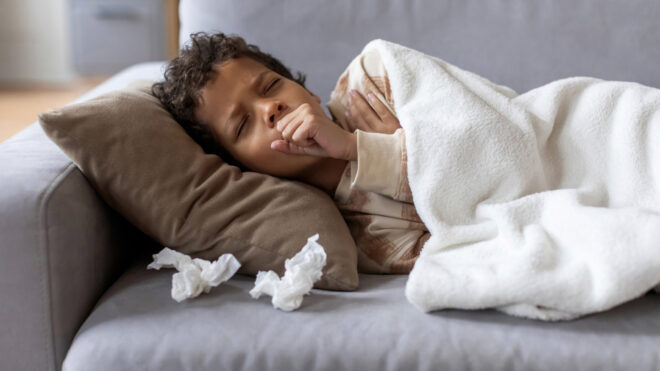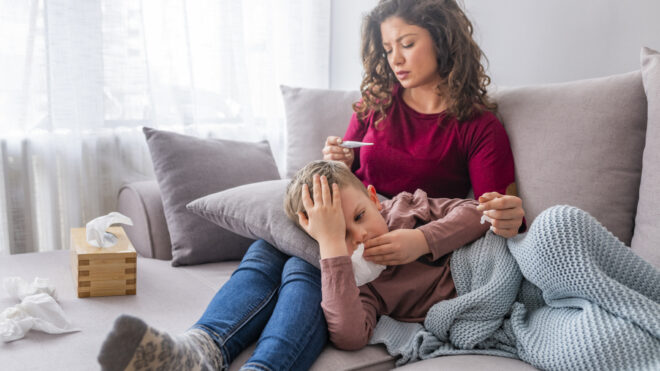
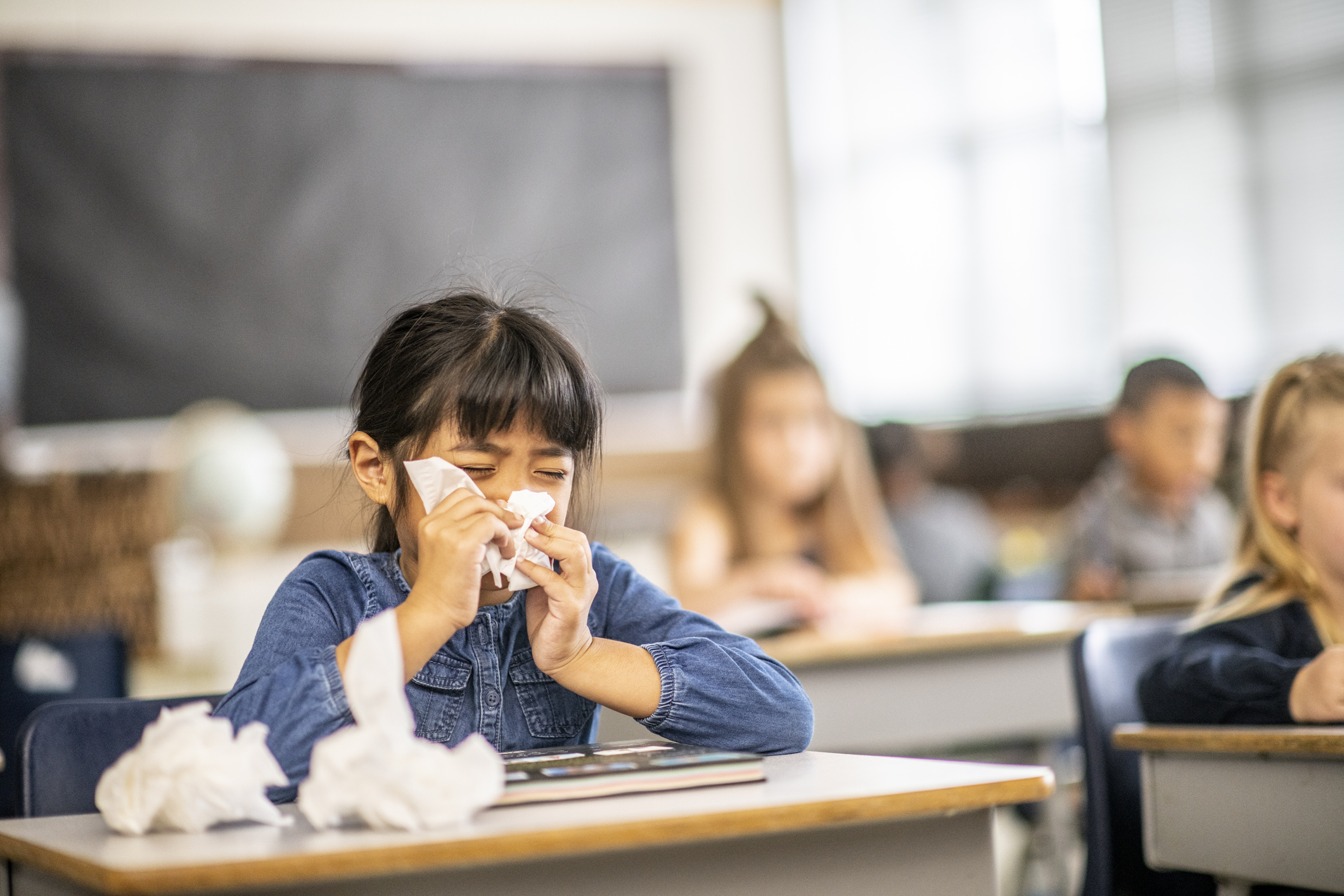
Having a sick kid presents a whole slew of problems, but one that's often overlooked is etiquette. When should you keep your kid home from school out of consideration of his classmates? Should you disclose the ailment to other moms before agreeing to a playdate?
Since missteps here can be costly — i.e., you end up responsible for the latest epidemic sweeping first grade — it's important to follow a few simple rules like the ones below on what to do.
Know the Cutoff Point for Fevers
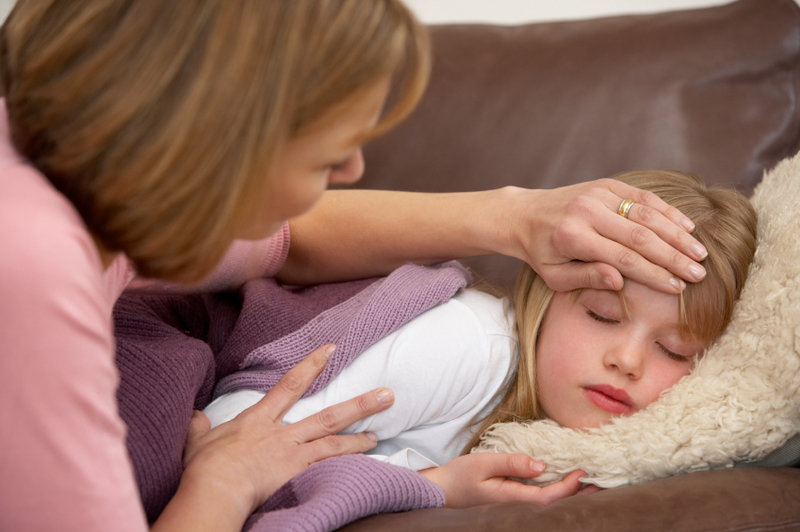
"Children should stay home from school if they have had a fever of 101 degrees orally or 100 degrees taken under the arm within the last 24 hours," says Loraine Hughes, RN, nursing supervisor of Rainbow Station, which provides emergency backup care for school-age kids. "Children should be fever-free without the use of fever-reducing medications for 24 hours prior to returning to school after being ill." The reason isn't that a fever itself is contagious, but just that a child with fever needs to rest and recuperate, says Hannah Chow-Johnson, MD, pediatrician at Loyola University Health System.
Keep Kids With the Flu at Home

If your child has the flu, definitely keep him at home, since kids can spread the virus up to six feet away, mostly through droplets when they cough, sneeze, or talk. According to the Centers for Disease Control, flu patients are contagious from one day before symptoms start to seven days after getting sick.
Follow This Rule for Coughs
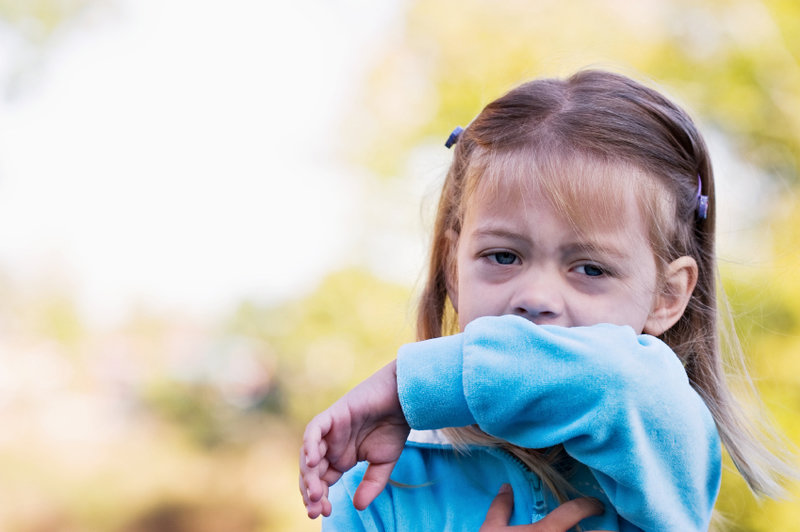
"With coughing, a minor cough doesn't mean a child should stay at home," says Dr. Chow-Johnson. "However, you should keep your child at home if he or she has a steady cough, a hacking cough, or coughing fits. If you send your child to school, you risk infecting all his or her classmates." You should also teach your child how to cough in elbows or tissues, and given the rise in concerns about pertussis or whooping cough, make sure you and your child are vaccinated with newer vaccines like Adacel and Boostrix.
Determine If It's Sore Throat or Strep
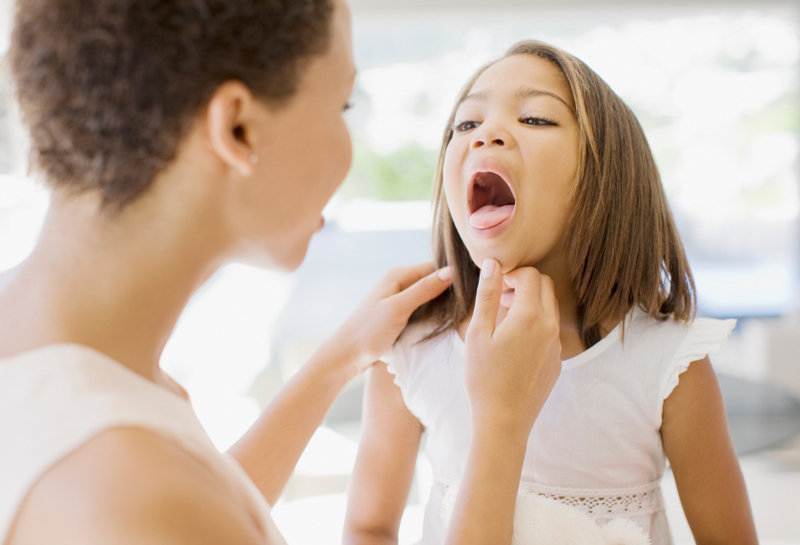
Sore throats are generally not a big concern in terms of contagiousness … except if your kid has strep. "Typical strep throat symptoms include constant sore throat, headaches, stomachache, and fevers," says Dr. Chow-Johnson. "Sometimes a bright, sunburn-like rash accompanies the sore throat." If your child has strep, he or she is contagious until being on antibiotics for 24 hours. Otherwise, if it’s not strep, go by your child’s level of comfort as far as returning to school. Seventy percent of the time sore throats are caused by viruses, so the odds are in your favor.
When in Doubt, Consult Your Doctor

Contagiousness varies from disease to disease from as long as 7–10 days before symptoms appear and as late as the end of the illness. As a result, "the considerate thing to do in terms of when your kids can go back to school is to get an expert opinion: This way, you are not just relying on your desire to get them back there but making an informed decision," says Amy Alkon, author of Good Manners for Nice People Who Sometimes Say F^ck. "This shows consideration for others, to the best of your ability." If you can call your doctor to ask what the doctor advises in respect to whatever the child is sick with, that's the best option, or refer to reliable websites like the CDC.
Disclose Your Kid's Health to Other Parents

Whether your sick kids have a playdate or birthday party on their agenda, it's your responsibility to inform families who'll come in contact with your kid and give them the chance to opt out. "Even if you think it's likely your child is no longer contagious, the first and main thing you owe the other parents is disclosure," says Alkon. "Informing them that your child has been ill allows them to have a choice in the matter. If they err on the side of paranoia, present information to see if you can help them feel more comfortable about allowing your child along on the activity. The best information is the word of your doctor on when it's safe for your child to be around others without infecting them. But ultimately, it is their choice."
Encourage Your Kids to Curb the Spread of Germs
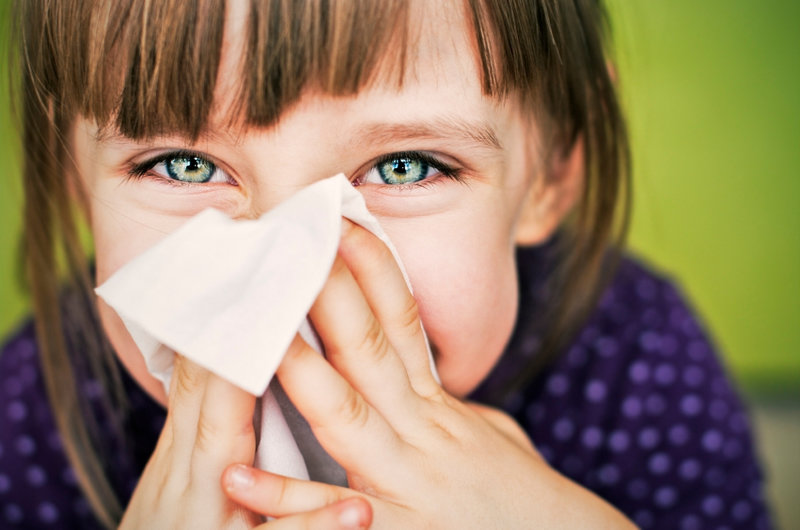
"Help teach your kids good manners for when they're sick like using tissues, not hands, to wipe their nose," says Alkon. "Explain that we all hate being sick and that's why we don't want to make other people sick. Encourage this by buying cute tissues with cartoons or other pictures on them. They're a little more expensive, but you'll be giving your kids a lesson in consideration for others."

